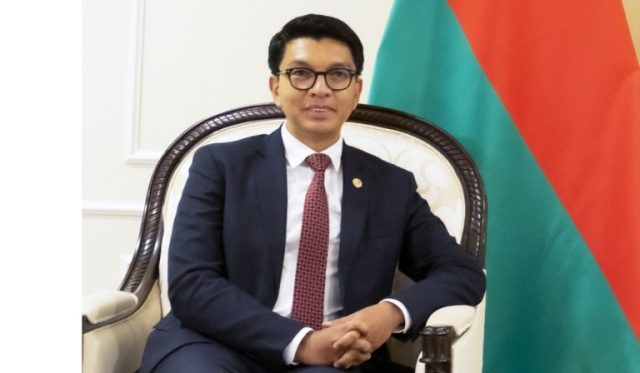A Madagascar Army Colonel has announced that the Military has taken charge of the African island nation after its parliament voted to impeach President Andry Rajoelina, following weeks of youth-led anti-government protests.
There were celebrations in the streets of the Capital City, Antananarivo, following Colonel Michael Randrianirina’s announcement, which came almost immediately after parliament voted to impeach President Rajoelina, who fled the country after soldiers joined the mass protests.
“We have taken the power the Military was dissolving all institutions except the Lower house of Parliament,” Col Randrianirina said.
Col Randrianirina later told journalists that a committee led by the Military would rule the country for a period of up to two years alongside a transitional government before organising new elections.
“The renovation period will last a maximum of two years. During this time, a referendum will be held to establish a new constitution, followed by elections to gradually set up the new institutions,” He told reporters.
He named institutions which were suspended as the Senate, the High Constitutional Court, the Independent National Electoral Commission, the High Court of Justice, and the High Council for the Defense of Human Rights and the Rule of Law.
President Rajoelina, whose whereabouts remain unknown, earlier sought to dissolve the lower house by decree, but lawmakers went ahead with a vote to impeach him, leaving the country in a constitutional deadlock that the military seized upon to declare they were taking charge, but Rajoelina denounced the move as a clear act of attempted coup d’etat.
“The president of the republic remains fully in office and ensures the maintenance of constitutional order and national stability,” The Presidency said in a statement.
President Rajoelina had been facing growing calls to resign throughout weeks of youth-led antigovernment protests and a turning point in the protests came when an elite military unit joined the demonstrators and turned against him and this prompted Rajoelina to say there was an attempt to seize power, and he went into hiding.
President Rajoelina, a former Mayor of Antananarivo, said that he had left the country in fear for his life and was sheltering in a safe space, but a military source told journalists that he left the country on Sunday on board a French army aircraft, although France’s President Emmanuel Macron refused to confirm that his government had played a role.
Hours after President Rajoelina spoke of an attempt to seize power illegally and by force, the army’s elite CAPSAT unit, which played a key role in the 2009 coup that first brought Rajoelina to power, said it had taken control of the military and it had earlier announced it would refuse orders to shoot demonstrators.
Reports indicate that the Police had joined the military and gendarmerie in backing the demonstrations, led by Gen Z groups, which began on September 25th, initially to express anger over water and power outages, however, they soon expanded to encompass wider grievances over the cost of living, poverty and alleged government corruption, fuelling widespread calls for Rajoelina’s resignation.
President Rajoelina, who had positioned himself as a reformist, led a transitional government until 2014, stepping aside to restore constitutional order and returned after winning the 2019 election and secured a second full term in 2023.
The United Nations said that at least 22 people have been killed and more than 100 injured since the demonstrations began although Rajoelina’s government disputed these figures, but one CAPSAT soldier died in fighting with the Gendarmerie on Saturday before a widespread move by the country’s security forces to support the demonstrations.
The protests have exposed deep frustration in one of the world’s poorest nations, where only a third of the population has access to electricity and blackouts routinely exceed eight hours a day.
The Gen Z Madagascar movement has drawn inspiration from recent uprisings that have challenged governments in several countries, including Kenya, Indonesia and Peru and such youth-led demonstrations in South Asia have unseated governments in Bangladesh, Nepal and Sri Lanka, but Gen Z Madagascar had refused government offers for dialogue despite repeated outreach efforts by President Rajoelina’s administration.
Additional Reporting from Associated Press.








